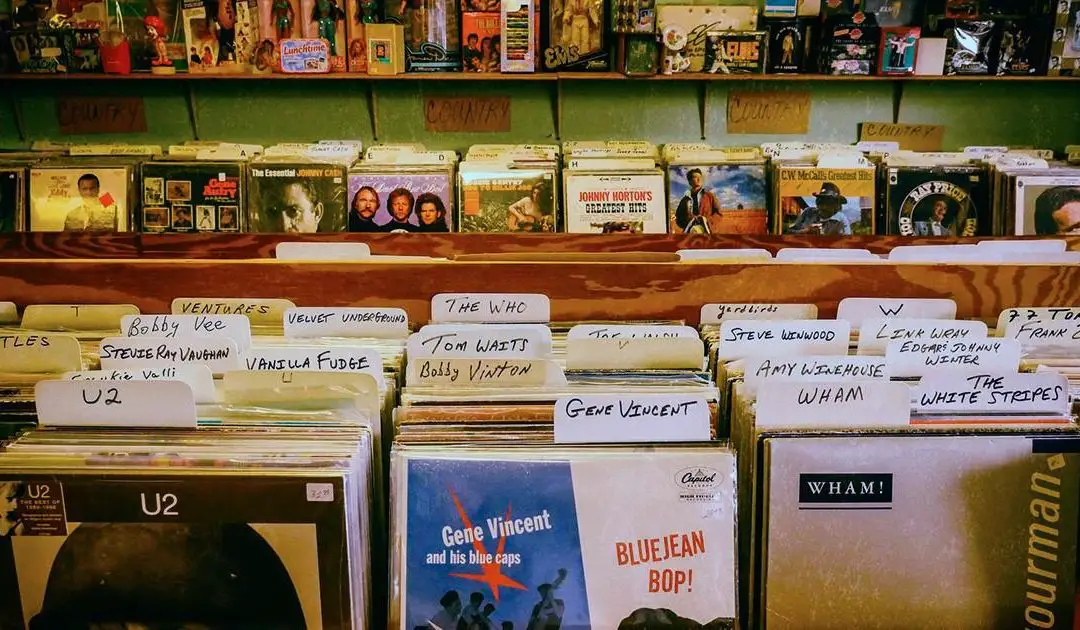Have you ever felt like your musical talents are locked away, just waiting to be unleashed like a caged beast? Well, fear not, because the key to unlocking the music within you might just be a simple scale. That’s right, those seemingly mundane sequences of notes that we all learned in our early music lessons hold the power to transform your playing from bland to breathtaking. So grab your instrument and get ready to conquer the musical world with the power of scales!
Contents
- 1 Exploring the Fundamental Role of Scales in Music Education
- 2 Mastering Scales to Unlock Musical Potential
- 3 The Scientific Basis Behind Scales and Musical Proficiency
- 4 Incorporating Scales into Daily Practice Routines
- 5 Advanced Techniques for Scale Mastery
- 6 Transformative Effects of Scale Practice on Musical Expression
- 7 Adapting Scale Practice for Different Musical Instruments
- 8 FAQs
- 9 So, go forth and unleash your inner music maestro!
Exploring the Fundamental Role of Scales in Music Education
Who knew that the scales we’ve all been forced to practice for years actually have a fundamental role in music education? Well, surprise surprise, they do! Let’s dive into why scales are so darn important:
First and foremost, scales are like the building blocks of music. They provide the foundation for understanding keys, intervals, and harmonies. Without mastering scales, it’s like trying to build a house without a solid foundation – it just won’t work! So, next time you’re groaning about having to practice your scales, remember that you’re actually laying the groundwork for all the epic music you’ll create in the future.
Secondly, scales help develop your technique and finger dexterity. Think of them as musical finger exercises. The more you practice scales, the more nimble and agile your fingers become. Plus, it’s like a secret workout for your brain too – all that memorization and coordination really gets those neurons firing!
And let’s not forget that scales are essential for improvisation. Knowing your scales inside and out gives you the freedom to play around and create your own musical masterpieces. It’s like having a magic musical toolbox at your fingertips – the possibilities are endless!

Mastering Scales to Unlock Musical Potential
Are scales giving you the blues? Feel like you’re stuck in a musical rut? Fear not, dear reader! Mastering scales is the key to unlocking your full musical potential and taking your skills to the next level. Let’s dive in and explore how you can conquer those pesky scales once and for all.
First things first, it’s important to understand the different types of scales out there. From the classic major and minor scales to the more exotic pentatonic and blues scales, there’s a whole world of musical possibilities waiting for you to explore. So grab your instrument of choice and get ready to embark on a sonic adventure like never before!
Practice makes perfect, they say. And when it comes to mastering scales, truer words were never spoken. Dedicate some time every day to practice your scales, and watch as your fingers start to glide effortlessly across the fretboard or keys. Soon enough, you’ll be jamming out like a pro and impressing your friends with your newfound musical prowess.
Don’t forget to have fun along the way! Music is all about self-expression and creativity, so don’t be afraid to experiment with different scales and techniques. Mix things up, play around with different rhythms and tempos, and let your musical genius shine. Who knows, you might just discover a whole new side of yourself that you never knew existed!

The Scientific Basis Behind Scales and Musical Proficiency
Have you ever wondered why some people seem to effortlessly shred on the guitar while others struggle to even strum a chord? Well, my friends, it all comes down to the magical world of scales and musical proficiency.
Let’s break it down for you in terms even a tone-deaf frog could understand:
1. **Scales**: Think of scales as the building blocks of music. Just like a Lego tower needs blocks of different sizes to reach great heights, a musician needs scales to create beautiful melodies and harmonies. Without scales, you’re just playing a random assortment of notes that make your ears wish they had earplugs.
2. **Musical Proficiency**: This is basically a fancy way of saying how good you are at playing an instrument. Some people are born with the natural talent to pick up an instrument and play like Beethoven on a caffeine high. Others, well, let’s just say their musical talents might be better suited for playing the triangle in a kindergarten band.
So next time you listen to a mind-blowing guitar solo or a soul-stirring piano concerto, remember that it all boils down to scales and musical proficiency. And if you’re like me and can’t carry a tune in a bucket, just sit back, relax, and enjoy the musical magic unfolding before your very ears.

Incorporating Scales into Daily Practice Routines
So you’ve decided to take your music practice to the next level by incorporating scales into your daily routine. Congratulations! Scales are like the vegetables of the music world – not always the most exciting, but oh so necessary for a healthy musical diet.
Here are some fun ways to spice up your scale practice:
- Play them with different rhythms: Try playing your scales in triplets, swung eighth notes, or even add in some syncopation for extra flavor.
- Challenge yourself with different articulations: Experiment with staccato, legato, or even some spiccato if you’re feeling fancy.
- Transpose them to different keys: Don’t let those scales get too comfortable in their home key – mix things up by shifting them to unfamiliar territory.
Remember, mastering scales is all about consistency and repetition. Just like eating your veggies every day, the more you practice, the sweeter the payoff will be in the long run. So grab your instrument, set aside some time each day, and get ready to conquer those scales like a musical superhero!

Advanced Techniques for Scale Mastery
So you’ve finally mastered the basics of scales and are ready for some advanced techniques to take your skills to the next level. Look no further, because we’ve got some tricks up our sleeves that will have you dominating the fretboard in no time!
First up, let’s talk about alternating fingerings. Instead of sticking to the same finger pattern for every scale, try mixing it up to keep things interesting. This will not only improve your finger dexterity, but will also help you navigate different scale shapes more smoothly. Trust us, your fingers will thank you!
Next, why not try incorporating hammer-ons and pull-offs into your scale practice? This will not only add some flair to your playing, but will also help you develop a smoother, more legato style. Plus, it’s just plain fun to make your guitar sing with these techniques!
Lastly, don’t forget to experiment with different time signatures when practicing your scales. Sure, 4/4 is great and all, but why not challenge yourself with some 5/4 or 7/8 scales? Not only will this improve your sense of rhythm, but it will also keep you on your toes and prevent your playing from becoming stale.
Transformative Effects of Scale Practice on Musical Expression
Practicing scales may seem like a mundane task, but the transformative effects it can have on your musical expression are truly remarkable. As you diligently work through scales, you begin to notice subtle changes in your playing that can make a world of difference in your overall performance.
One of the most noticeable effects of scale practice is the improvement in your technical proficiency. As you master the fingering and positioning of each note, your fingers become more nimble and agile, allowing you to navigate the keys with ease. Suddenly, those tricky passages that once tripped you up are now a breeze to play.
But the benefits of scale practice go beyond just technical prowess. It also helps to develop your ear for music, as you become more attuned to the subtle nuances of pitch and tone. You start to notice the intricate relationships between notes and how they blend together to create beautiful melodies.
Additionally, practicing scales can enhance your creativity and improvisational skills. By exploring different patterns and variations within the scales, you can unlock a world of musical possibilities. Before you know it, you’ll be incorporating these newfound techniques into your performances, adding depth and flair to your music.
Adapting Scale Practice for Different Musical Instruments
So, you’ve mastered scale practice on one instrument and now you want to try it out on another? Don’t worry, with a little creativity and a lot of patience, you can adapt your scale practice routine to fit any musical instrument! Here are a few tips to get you started:
First off, **understand the differences** between the instruments you are working with. Each instrument has its own unique challenges when it comes to playing scales, so it’s important to take these into account when adapting your practice routine. For example, string instruments like the violin or guitar require precise finger placement, while wind instruments like the flute or saxophone require strong breath control.
Next, **start slow and build up**. Just because you can play scales quickly on one instrument doesn’t mean you’ll be able to do the same on another right away. Take your time to get familiar with the new instrument’s range and feel before increasing your speed. Remember, practice makes perfect!
Another tip is to **experiment with different fingerings** and techniques. What works for one instrument may not work for another, so don’t be afraid to try out new fingerings or hand positions to find what works best for you. This can help you get a better feel for the instrument and improve your overall playing technique.
FAQs
Why are scales important in music?
Scales are like the building blocks of music. They help musicians understand the fundamental structure of music, improve their technique, and develop their ear for different sounds.
How can learning scales benefit my musical skills?
By practicing scales, you can improve your finger dexterity, develop muscle memory, and enhance your overall musicality. Plus, impressing your friends with your mad scale skills is always a bonus!
Are there different types of scales I should learn?
Absolutely! There are various types of scales, such as major, minor, pentatonic, blues, and more. Each scale has its own unique sound and can add depth and color to your music.
How often should I practice scales?
As they say, practice makes perfect! Try to incorporate scale practice into your daily routine to see the best results. Who knows, practicing scales might even be the key to your musical breakthrough!
Can scales help me with improvisation?
Definitely! By mastering scales, you’ll have a better understanding of which notes work well together, making it easier for you to improvise and create your own musical masterpieces. So go ahead, unleash your inner musical genius!
So, go forth and unleash your inner music maestro!
Now that you’ve learned about the power of scales, it’s time to grab that guitar, dust off that keyboard, or whip out that flute and start jamming out like never before. Remember, practice makes perfect, so don’t be afraid to hit those scales until they’re second nature. And who knows, maybe one day you’ll be headlining your own concert or rocking out on a world tour.
So, don’t wait any longer – get out there and let the music flow through you. Your audience is waiting, and who knows, you might just become the next music sensation. Keep on rockin’!



